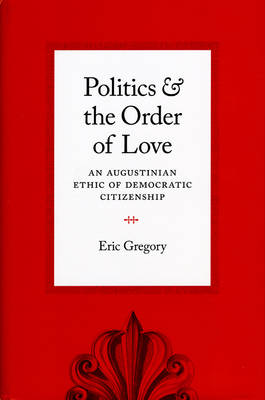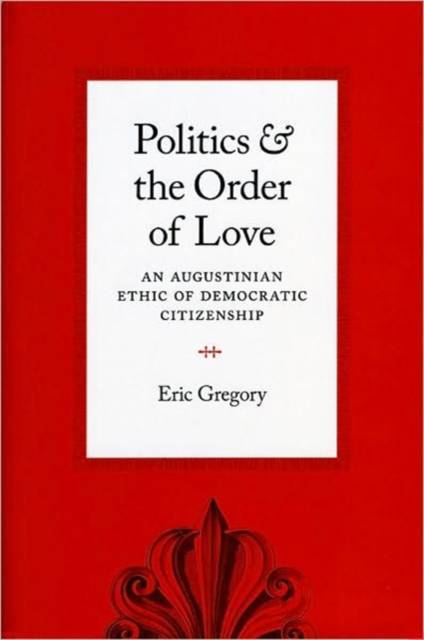
Je cadeautjes zeker op tijd in huis hebben voor de feestdagen? Kom langs in onze winkels en vind het perfecte geschenk!
- Afhalen na 1 uur in een winkel met voorraad
- Gratis thuislevering in België vanaf € 30
- Ruim aanbod met 7 miljoen producten
Je cadeautjes zeker op tijd in huis hebben voor de feestdagen? Kom langs in onze winkels en vind het perfecte geschenk!
- Afhalen na 1 uur in een winkel met voorraad
- Gratis thuislevering in België vanaf € 30
- Ruim aanbod met 7 miljoen producten
Zoeken
Politics and the Order of Love
An Augustinian Ethic of Democratic Citizenship
Eric Gregory
Paperback | Engels
€ 64,45
+ 128 punten
Omschrijving
Augustine--for all of his influence on Western culture and politics--was hardly a liberal. Drawing from theology, feminist theory, and political philosophy, Eric Gregory offers here a liberal ethics of citizenship, one less susceptible to anti-liberal critics because it is informed by the Augustinian tradition. The result is a book that expands Augustinian imaginations for liberalism and liberal imaginations for Augustinianism.
Gregory examines a broad range of Augustine's texts and their reception in different disciplines and identifies two classical themes which have analogues in secular political theory: love--and related notions of care, solidarity, and sympathy--and sin--as well as related notions of cruelty, evil, and narrow self-interest. From an Augustinian point of view, Gregory argues, love and sin constrain each other in ways that yield a distinctive vision of the limits and possibilities of politics.
In providing a constructive argument for Christian participation in liberal democratic societies, Gregory advances efforts to revive a political theology in which love's relation to justice is prominent. Politics and the Order of Love will provoke new conversations for those interested in Christian ethics, moral psychology, and the role of religion in a liberal society.
Gregory examines a broad range of Augustine's texts and their reception in different disciplines and identifies two classical themes which have analogues in secular political theory: love--and related notions of care, solidarity, and sympathy--and sin--as well as related notions of cruelty, evil, and narrow self-interest. From an Augustinian point of view, Gregory argues, love and sin constrain each other in ways that yield a distinctive vision of the limits and possibilities of politics.
In providing a constructive argument for Christian participation in liberal democratic societies, Gregory advances efforts to revive a political theology in which love's relation to justice is prominent. Politics and the Order of Love will provoke new conversations for those interested in Christian ethics, moral psychology, and the role of religion in a liberal society.
Specificaties
Betrokkenen
- Auteur(s):
- Uitgeverij:
Inhoud
- Aantal bladzijden:
- 434
- Taal:
- Engels
Eigenschappen
- Productcode (EAN):
- 9780226307527
- Verschijningsdatum:
- 15/12/2010
- Uitvoering:
- Paperback
- Formaat:
- Trade paperback (VS)
- Afmetingen:
- 150 mm x 224 mm
- Gewicht:
- 557 g

Alleen bij Standaard Boekhandel
+ 128 punten op je klantenkaart van Standaard Boekhandel
Beoordelingen
We publiceren alleen reviews die voldoen aan de voorwaarden voor reviews. Bekijk onze voorwaarden voor reviews.









